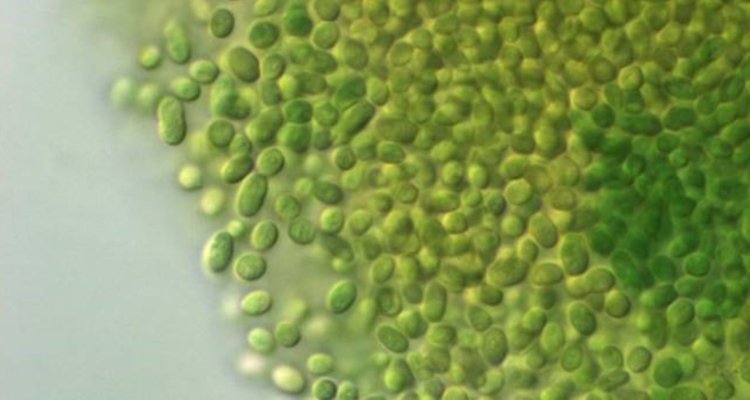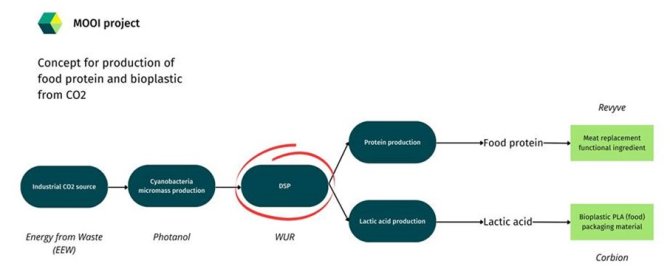
Project
CYANOVA – NOvel biorefinery of CYANObacteria for bioplastic & food Valuable compounds
This project addresses the need for the chemical industry to replace fossil oil and gas based ‘linear carbon’ with ‘renewable circular carbon’ in the production of bulk and platform chemicals and the need for alternative protein sources for food. Photosynthetic cyanobacteria are promising because of their potential to accumulate high levels (>50) of the sugar-storage molecule glycogen and high levels of functional protein (>50%) for food applications. However, a biorefinery system needs to be developed allowing highly efficient and cost-effective processing.
Background information
There is an increasing demand for novel sources of protein and fuel to keep up with the ever-growing human population and the stress of climate change on current agricultural, food and fuel production processes. Cyanobacteria, also called blue-green algae, are a promising source for proteins, lipids and carbohydrates for the food/feed and biofuel industry. For example, glycogen, a major product of many cyanobacteria, can be fermented into ethanol, which can be used as a biofuel or chemical feedstock for other compounds. Furthermore, cyanobacteria can reach protein contents up to 70%.
The high protein content, production of essential lipids and fatty acids, and
presence of important vitamins make cyanobacteria an ideal candidate for
expanding the human diet. Cyanobacteria share many desirable traits with other
algae for sustainable product production. They do not require arable land for
cultivation and have faster growth rates than all terrestrial plants.
Furthermore, their extremophile nature allows large-scale cultivation in harsh
conditions, reducing contamination risk. Cyanobacteria can thrive in outdoor
ponds under conditions such as high salt or high pH and marine cyanobacteria
eliminate the need for freshwater in their cultivation. Owing to their unparalleled
growth efficiency, diverse morphology, and nutritional composition, these
single-celled organisms are excellent candidates for engineering new food
products or emulating existing animal products to meet a variety of
nutritional, environmental, and production needs. However, to be able to
compete with conventional production processes economic challenges need to be
overcome by improvements in strains and production processes.
Project description
Aim:
Designing a highly efficient and cost-effective biorefinery process for the separation of fermentable sugars and food protein from cyanobacteria
Approach:
This project is part of the MOOI consortium: a multidisciplinary consortium working on circular value chain using CO2 as feedstock to produce sugar for (bio)plastics and protein for food production.

Contributions to the consortium are:
- EEW Energy from Waste GmbH: As a leading company in the generation of heat and power through thermal waste utilization, EEW provides its CO₂ for the process.
- Photanol: A leading cyanobacteria-based CO₂ conversion company, Photanol develops cyanobacteria that convert the CO₂ into sugars and protein.
- Wageningen University & Research (WUR): World-class University specializing in life sciences develops the fractioning process of the bacterial cells to sugars and protein.
- Corbion: The global market leader in lactic acid and -derivatives, uses the sugar to produce precursors for PLA, a bio-based and biodegradable low-carbon footprint polymer.
- revyve: Top-notch developer of animal-free ingredients, revyve will refine the cyanobacteria into functional ingredients and perform product development.
MOOI is an abbreviation for Missiegedreven Onderzoek, Ontwikkeling en Innovatie (Mission-driven Research, Development, and Innovation). It is a funding initiative by Rijksdienst voor Ondernemend Nederland (Netherlands Enterprise Agency), short RVO. This initiative supports collaborative projects that aim at establishing innovative solutions that contribute to national climate goals.
Thesis project:
There are different topics available for a thesis within this project. If you are interested, please feel free to get in touch.